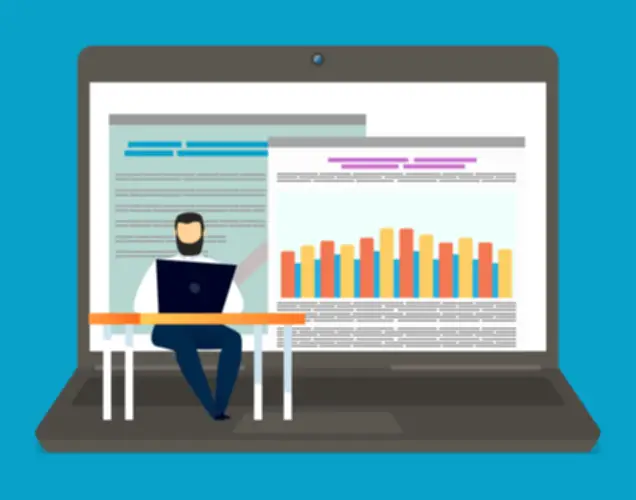The articles and research support materials available on this site are educational and are not intended to be investment or tax advice. All such information is provided solely for convenience https://www.xcritical.com/ purposes only and all users thereof should be guided accordingly. Finance Strategists has an advertising relationship with some of the companies included on this website. We may earn a commission when you click on a link or make a purchase through the links on our site. All of our content is based on objective analysis, and the opinions are our own. However, due to its inherent risk, effective risk management systems and strict compliance with regulations are critical.

What Is Prop Trading? In Plain English
Many prop trading firms also include risk management protocols, which might involve stopping a trader’s activity if losses exceed a certain amount. These protocols Decentralized finance safeguard the firm’s capital and create a controlled environment for traders. The financial industry also benefits from prop trading firms, as they are willing to take higher risks and employ innovative strategies to provide liquidity and maintain market efficiency. This regulation led to a decline in proprietary desks within banks and the growth of independent proprietary trading firms, commonly known as prop shops. Given that prop traders use the firm’s capital, a trade’s success or failure can materially affect the company’s financial stability.

Why do prop firms provide traders with funding?
Although you don’t need a Ph.D. to be a prop trader, you must pass a challenge. In this guide, we break down the specifications of futures, forex, shares, crypto, and options funded accounts. We also talk about how a funded account works and how to choose the trader program best suited for your proprietary trading needs. A prop shop is a firm where the trader puts up a significant amount of risk capital. A positive track record is ideal for candidates, although no formal qualifications are required. Proprietary trading is a field where firms use their capital to try to earn market profits.
The Latest Developments in the World of Prop Trading
This document is not a solicitation or an offer to buy or sell futures, options, or forex. Generally, most prop firms make money from taking pre-agreed percentage from traders’ profits. With recent regulatory changes, the subscription fee-based model is coming to an end, and many traders choose programs that use live trading accounts and do not charge traders any upfront costs. Prop firms, on the other hand, don´t take on clients as investors but use their own capital to generate profits in financial markets. This allows them greater freedom, flexibility, and the chance to keep a larger percentage of the profits.
- With seniority, these traders gain in-depth experience across asset classes and trading styles such as high-frequency and medium-frequency trading.
- This is where the significant difference lies when compared to hedge funds.
- Jane Street traded more than $17 trillion worth of securities in 2020, putting it among the largest traders globally.
- This involves continuously quoting prices at which you’ll buy and sell securities.
- Additionally, if your strategies and decisions are not sound, they can lead to severe financial setbacks for your firm.
- With this in mind, keep in mind how much funding you really need for your trading style or strategy and only use funding amounts you are comfortable using.
- There was no retail trading, and investors who wanted to participate in the markets could only do so through intermediaries such as banks or equity managers.
You take the bulk of the risk, but if you earn money, the company will take a cut. This is the first stage where the assistant traders are involved in clerical services, answering calls, recording transactions, and financial assessments. Volatility Arbitrage traders bet on the difference between the implied volatility of the option and the actual market price of the underlying asset. The ability to leverage sophisticated modeling and trading software for critical decision-making also adds to these firms’ advantage.

As with any high-reward undertaking, prop trading comes with its share of risks, calling for the need of a deep understanding of market forces and robust risk management strategies. Proprietary trading represents a high-risk, high-reward segment of the financial markets. By leveraging their own capital and sophisticated strategies, proprietary trading firms aim to achieve substantial profits while navigating significant risks and regulatory requirements. Understanding prop trading provides valuable insight into the complexities of financial markets and institutional trading practices. Consider a hypothetical prop trading firm that offers capital to qualified traders.
While both aim for high returns, prop trading focuses on maximizing the firm’s profits, while hedge funds focus on balancing profit generation with investor expectations and risk management. In proprietary trading, the firm uses its own money to trade financial assets, with the goal of generating profits solely for the firm. The firm retains full control over its capital, trades, and strategies, giving it more flexibility in risk-taking and decision-making. If a trade results in significant gains, the firm benefits substantially.
Others operate remotely and can accept traders across the globe into their program. Individuals face many hurdles on their journey to become professional traders. While a lack of sufficient capital is the most obvious one, they may also lack access to technology, market data, and tools. Prop firms can help skilled individuals propel their trading careers by providing capital, training, and general support. Regulations like the Dodd-Frank Act and the Volcker Rule in the U.S., and MiFID II in Europe, have greatly influenced proprietary trading.
A decade ago, when disruptive technology took over, prop trading firms, especially the quant prop shops, used highly specialized software and trading algorithms to earn high profits. Investment banks and commercial banks in the major financial capitals established a prop trading desk. These financial institutions offered lucrative deals to the prop traders and profit-sharing deals. Hence, proprietary trading, or prop trading, offers you an avenue to engage in the financial markets using a firm’s capital rather than your own.
Our writing and editorial staff are a team of experts holding advanced financial designations and have written for most major financial media publications. Our work has been directly cited by organizations including Entrepreneur, Business Insider, Investopedia, Forbes, CNBC, and many others. Our team of reviewers are established professionals with decades of experience in areas of personal finance and hold many advanced degrees and certifications.
Despite the potential for high returns, proprietary trading can be risky. Poorly managed trades can lead to substantial losses, as demonstrated in the 2008 financial crisis. Furthermore, it can also lead to conflicts of interest between a firm and its clients. In the dynamic world of finance, various trading strategies and models exist, each with its unique characteristics and objectives. Among these, proprietary trading, or prop trading, stands out as a distinct and interesting approach.
The prop trading firms mushroomed as major financial institutions tailored their business model based on the new technology. Today, a proprietary trading firm has made its presence felt in every market, including share trading, commodities trading, index trading, forex trading, etc. Proprietary trading, or prop trading, is a form of trading where a firm or institution trades on its own account using its own funds rather than clients’ funds. Prop trading firms make profits through buying and selling financial instruments such as stocks, bonds, options, and other securities in the financial markets. Variable funded account sizes constitute a significant benefit for aspiring prop traders.
However, traders cop a share of the profits, in some cases, up to 90% or even a whopping 100%. The firm profits from its share, commissions, and account qualification fees. Prop Trading (Proprietary Trading) signifies firms using their own dosh to transact in varied financial instruments, with examples encompassing high street banks and hedge funds. The primary goal is profit accumulation through capitalising on market inconsistencies.
This desk is responsible for a portion of the financial institution’s revenues, unrelated to client work while acting autonomously. If you’re interested in becoming a successful prop trader, I’ve created a special course to help you pass the prop firm challenge. In this course, I share all the insider knowledge I’ve gained from working at a prop firm and helping many others succeed. You decide to buy Apple stock in the morning because you think the price will go up after a new iPhone is announced. By the end of the day, Apple’s stock goes up, and you sell it for a $2,000 profit.
In an industry where misinformation is rampant, Francis underscores the value of authentic mentorship. His insights remind us that while trading offers the potential for significant financial gain, the journey to mastery is paved with education, patience, and the right guidance. The Trading Pit emerged as the prop firm that provided him with a transparent, professional, and supportive environment, emphasising gradual and consistent growth. Certain prop forex trading firms may also impose ongoing commission fees once you’ve qualified for a live account. Driven by these substantial earnings, proprietary trading became an integral aspect of numerous banks’ operational models. Some even established standalone units exclusively for this form of trading.













